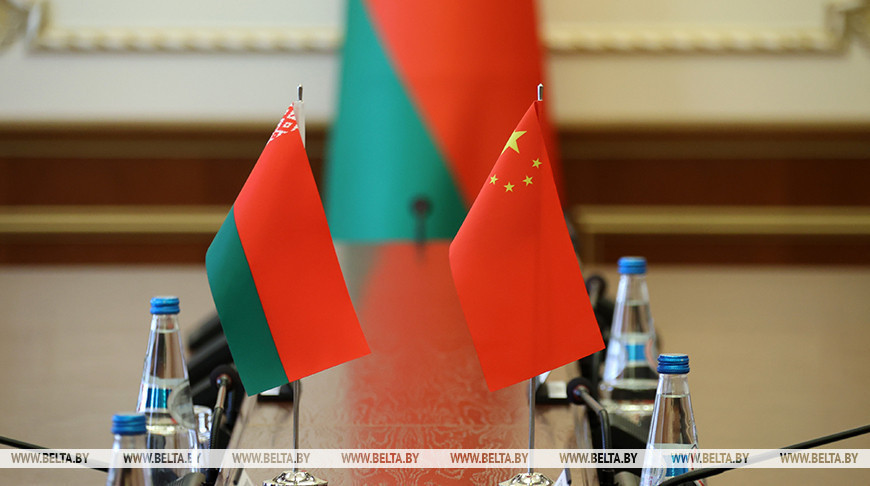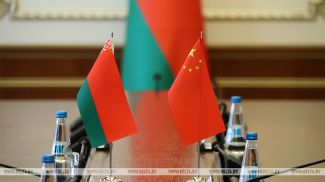
MINSK, 22 May (BelTA) - Trade, economic and investment cooperation between Belarus and China is gaining momentum across the board, Belarusian Economy Minister Yuri Chebotar said at a meeting of the Belarusian-Chinese intergovernmental committee on cooperation, BelTA learned from the press service of the Economy Ministry.
The minister noted that China has been Belarus' second largest trading partner for the last five years, while Belarus has been among the top ten largest suppliers of potash fertilizers, meat and dairy products, rapeseed oil to China and is ready to further increase exports. He also recalled that the agreement on trade in services and investment is expected to enter into force soon. The parties intend to start practical implementation of the document as soon as possible.
The government has already identified about 70 potential joint projects for industrial and technological cooperation with China. Priority areas include automotive and machine building, machine tools and instrumentation, optics and electronics, pharmaceuticals and other industries.
"Together with our Chinese colleagues we will continue to build mutually beneficial approaches to increase the level of localization of the existing joint production facilities and new ones. Technical and economic assistance projects are being successfully implemented: the construction of a national football stadium and a world-class swimming pool has been completed. A Luban workshop in foundry and metallurgy is considered as a new promising project," Yuri Chebotar said.
Significant efforts have been made to promote interregional cooperation. In 2024 and early 2025, ten detailed trade and economic cooperation plans were signed between twin regions. Four more are currently under consideration.
“The economy ministries have set the task to find effective solutions to all issues of trade and economic interaction,” the economy minister emphasized.
Following the meeting, the parties signed a memorandum of understanding to deepen investment cooperation in the digital economy. The document provides for the improvement of interaction mechanisms, joint utilization of digital capabilities, acceleration of digital transformation across various sectors, identification of cooperation priorities in the digital economy and the establishment of a framework for the qualitative development of bilateral investment cooperation.
The minister noted that China has been Belarus' second largest trading partner for the last five years, while Belarus has been among the top ten largest suppliers of potash fertilizers, meat and dairy products, rapeseed oil to China and is ready to further increase exports. He also recalled that the agreement on trade in services and investment is expected to enter into force soon. The parties intend to start practical implementation of the document as soon as possible.
The government has already identified about 70 potential joint projects for industrial and technological cooperation with China. Priority areas include automotive and machine building, machine tools and instrumentation, optics and electronics, pharmaceuticals and other industries.
"Together with our Chinese colleagues we will continue to build mutually beneficial approaches to increase the level of localization of the existing joint production facilities and new ones. Technical and economic assistance projects are being successfully implemented: the construction of a national football stadium and a world-class swimming pool has been completed. A Luban workshop in foundry and metallurgy is considered as a new promising project," Yuri Chebotar said.
Significant efforts have been made to promote interregional cooperation. In 2024 and early 2025, ten detailed trade and economic cooperation plans were signed between twin regions. Four more are currently under consideration.
“The economy ministries have set the task to find effective solutions to all issues of trade and economic interaction,” the economy minister emphasized.
Following the meeting, the parties signed a memorandum of understanding to deepen investment cooperation in the digital economy. The document provides for the improvement of interaction mechanisms, joint utilization of digital capabilities, acceleration of digital transformation across various sectors, identification of cooperation priorities in the digital economy and the establishment of a framework for the qualitative development of bilateral investment cooperation.













